People & Programs
Texas Teens Turn Citizen Scientists
Coding camps at TACC teach students to use computing for future careers, good of society
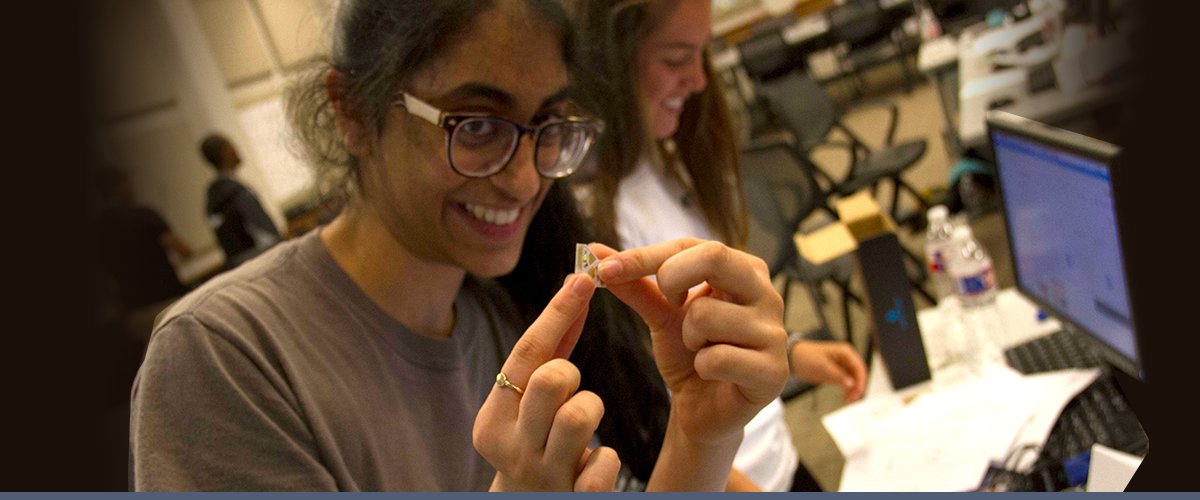
Gabriela Gonzalez, a senior at United High School in Laredo, Texas, said she never thought she'd be interested in coding, mostly because she was worried it would be too difficult to learn. But Gonzalez was fascinated by the impact of computers in our lives, so she took a leap and decided to attend Code@TACC Connected, a new program where students become citizen scientists and use technology to solve problems that are important to them.
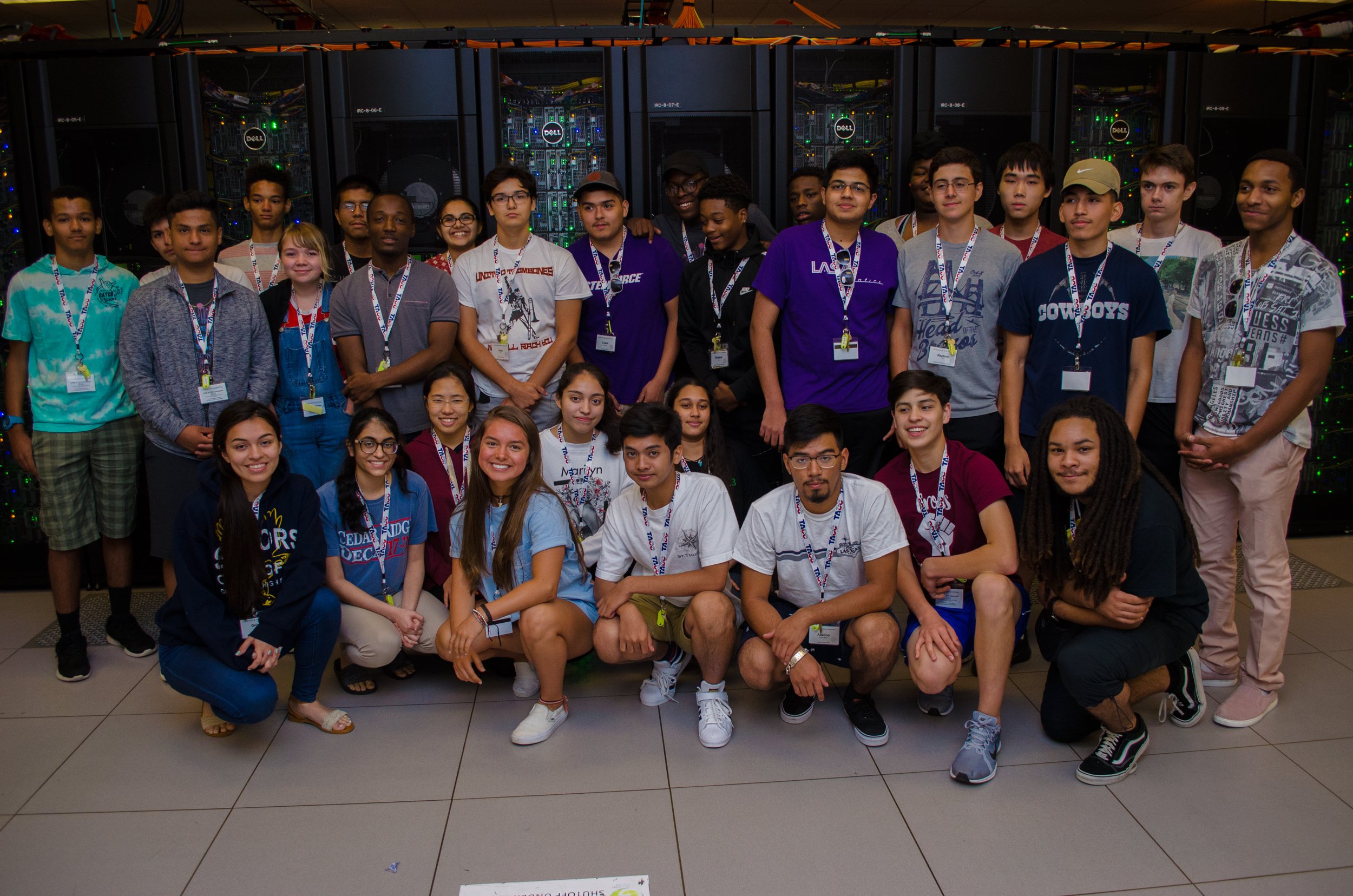
Gonzalez was one of 100 students who came from all over Texas — some as far as 350 miles away — to learn coding at UT's J.J. Pickle Research Campus. They stayed on campus for up to a week while they attended camps led by some of the best computer scientists and engineers in the world.
TACC hosted four camps in summer 2018, each focusing on a unique computing specialty — Code@TACC Robotics, Code@ TACC Cybersecurity, Code@TACC Connected, and Code@TACC Wearables.
Code@TACC Connected taught students how to use sensors and computers to observe, measure, and understand the world around them. The camp encouraged them to design their own experiments and apply their findings to actual issues affecting their communities.
For example, students worked in teams to build environmental sensor modules and deploy them around the J.J. Pickle Research Campus to collect environmental data. The data they collected helped them gain an understanding of temperature and humidity, and find correlations between the heat index and the amount of greenhouse gasses in the air.
Gonzalez, who participated in the Code@TACC Connected camp, says that the camp's focus on real world problem-solving made coding more accessible.
"Through this camp I've learned that actual data is much easier to comprehend and use rather than making assumptions. Numbers allow you to understand what is true and what is not true," Gonzalez said.
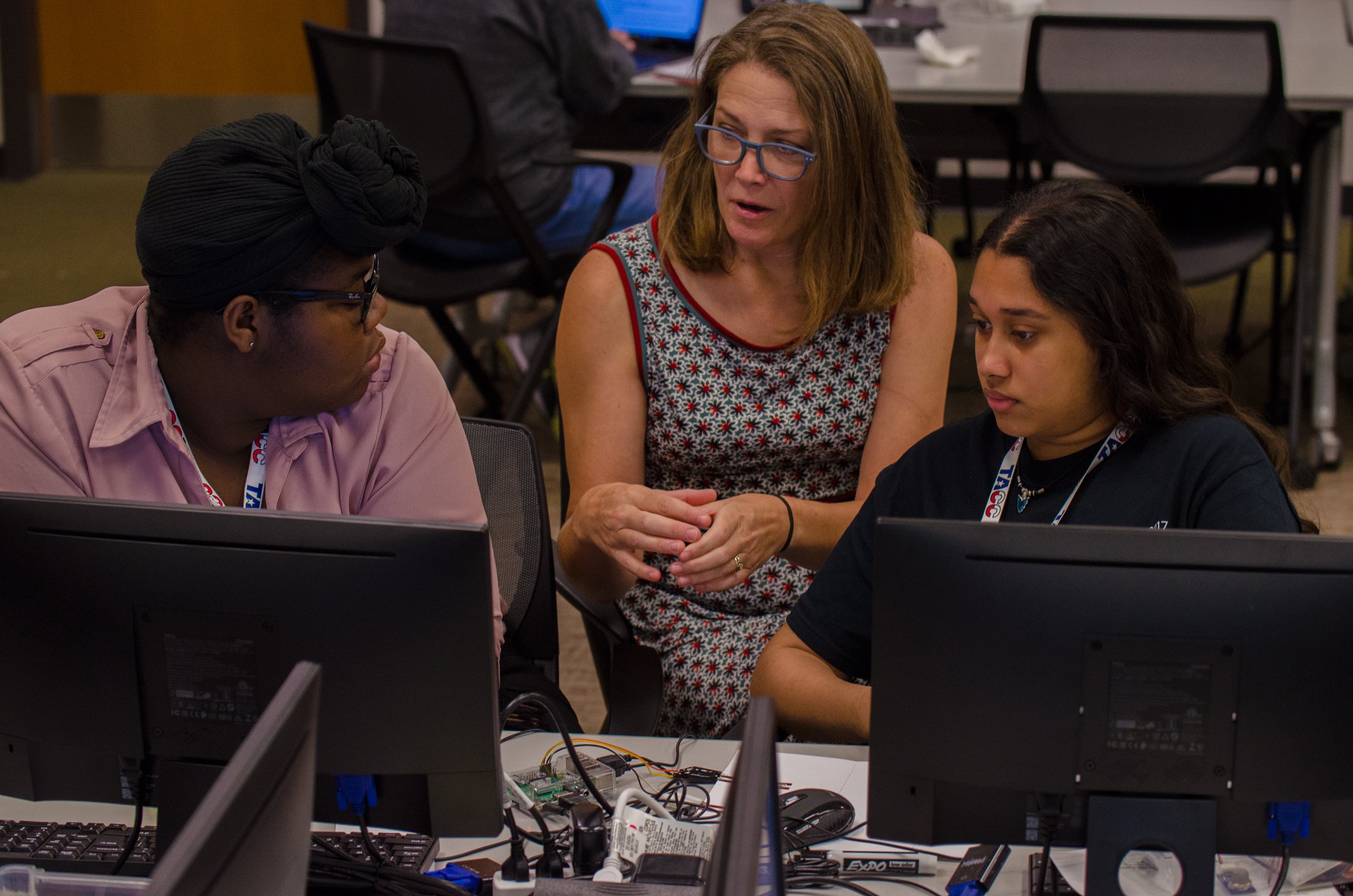
Gonzalez said that UT Austin is one of her top school choices, and she plans to study civil engineering and computer science.
Code@TACC Connected was created thanks in part to funding from Planet Texas 2050 (PT2050), a new initiative at UT Austin that has brought together more than 100 researchers from across campus to find ways to make Texas resilient in the face of climate extremes and rapid population growth.
As part of the camp, the students visited Waller Creek, an Austin-area waterway that for many years has experienced severe flooding. Waller Creek represents an example of what happens when natural watersheds become more urbanized.
"Here at the university, Waller Creek is a primary point of interest for scientists," said Suzanne Pierce, a research scientist at TACC and an organizing committee member of PT2050. "The very same environmental sensors that we used for the summer camp can also be used for Waller Creek, and the lessons learned can be transferred to Planet Texas 2050."
"We're very excited to have our signature Code@TACC program selected to contribute to these important efforts that the university is leading," says Rosalia Gomez, TACC Education & Outreach manager.
"Students came out of the camp learning that the landscape around them is not passive...that they can interact and observe the world more deeply, and the tools we use to do this, such as computers and coding, strengthen us," Gomez said.
Stem Opportunities
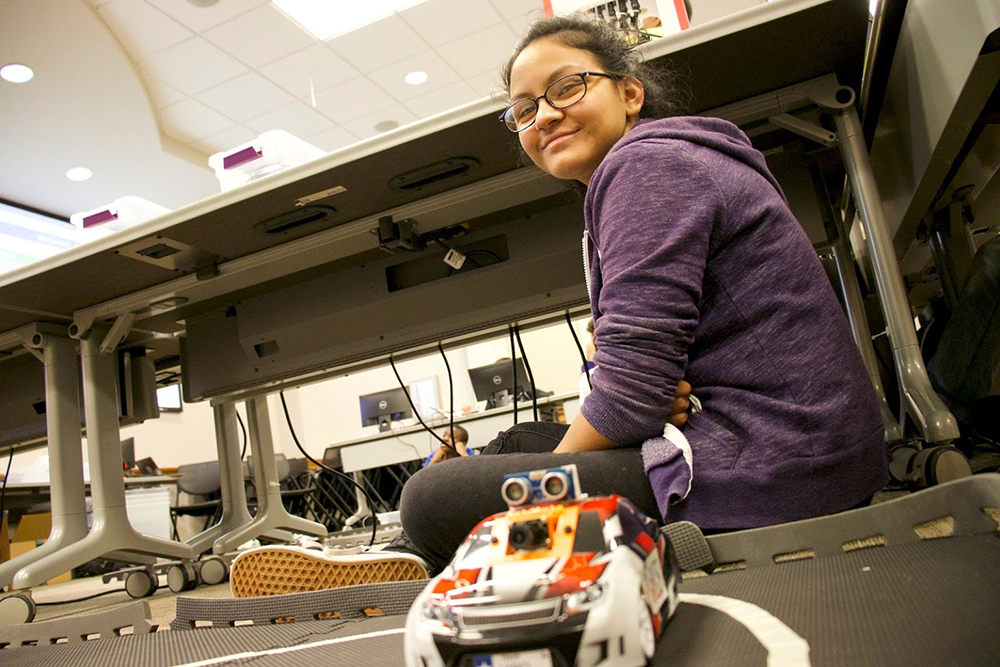
Code@TACC Robotics: An introduction to programming, robotics, and electronics.
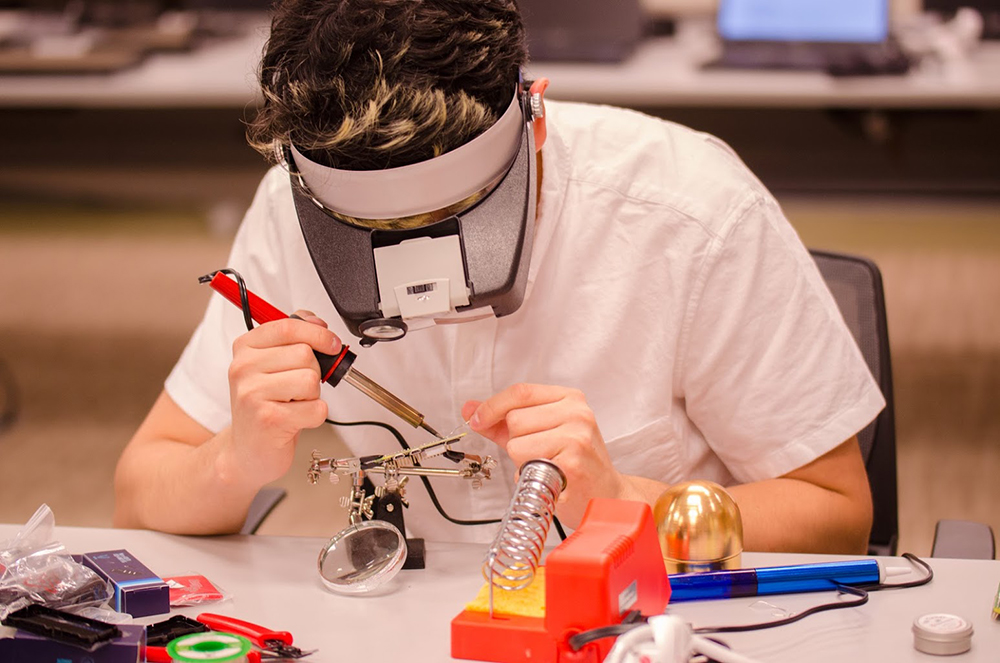
Code@TACC Wearables: Cloud computing, web application development, electronics, and the Internet of Things.

Code@TACC Cybersecurity: An introduction to cybersecurity careers and online safety.
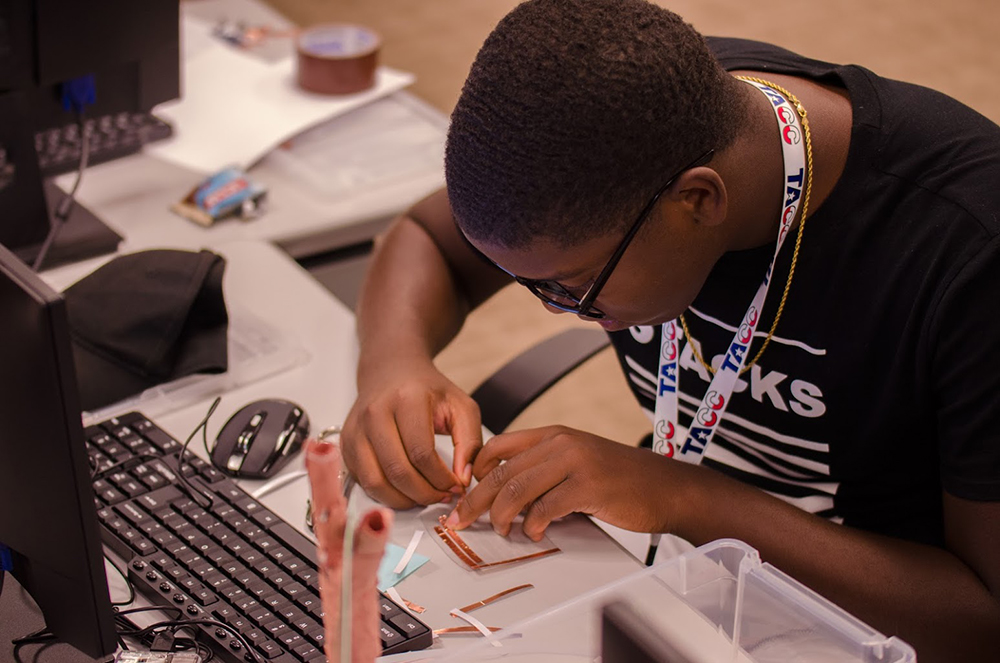
Code@TACC Connected: Using sensors and computers to observe, measure, and understand the world.
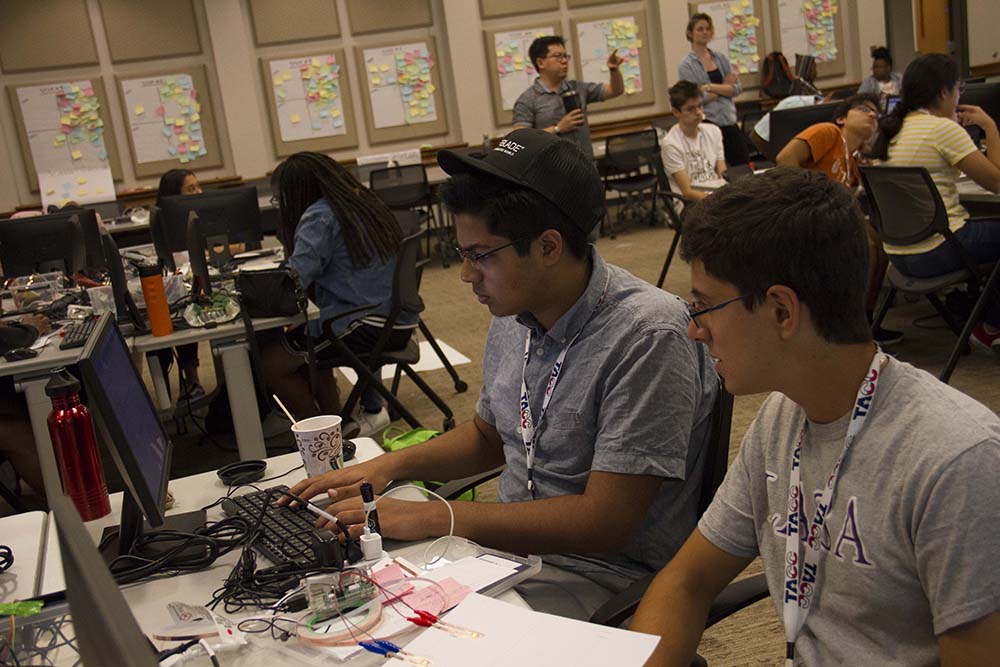
Back@TACC: Quarterly STEM workshops for past and prospective camp participants and families.
Learn more about TACC's Education and Outreach activites by visiting our website: useta.cc/outreach
In addition to summer programming, TACC provides educational tours throughout the year to increase awareness about the impact of science and technology; get students excited about STEM careers; and help students make the connection between STEM careers and their everyday lives.
The Summer 2018 Code@TACC camps were supported by the National Science Foundation, KLE Foundation, Summer STEM Investment Hub, Planet Texas 2050, Cisco, and Dell EMC.

